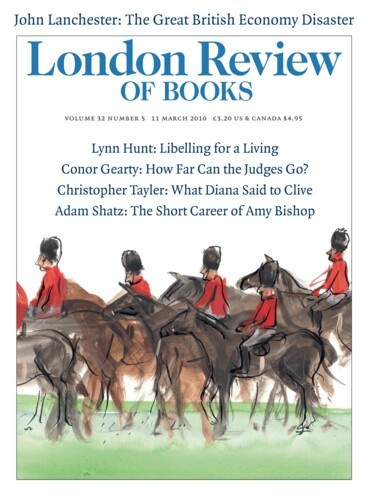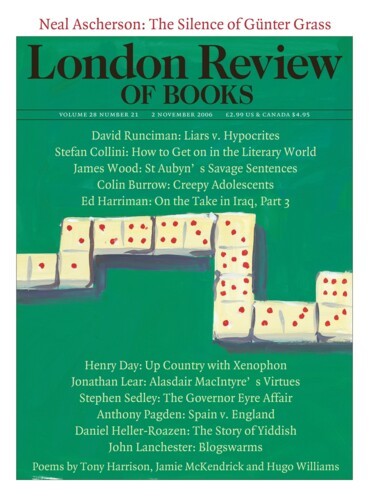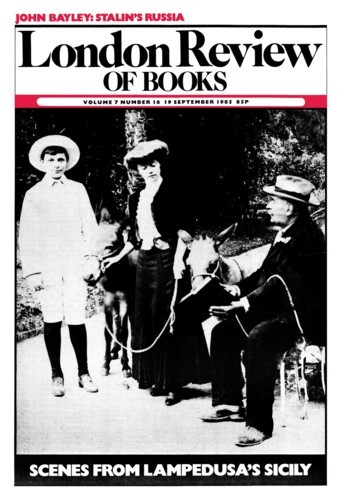Jonathan Lear
Jonathan Lear, the author of Radical Hope: Ethics in the Face of Cultural Devastation, teaches philosophy at the University of Chicago.
Sharing Secrets: Christopher Bollas
Jonathan Lear, 11 March 2010
Christopher Bollas is perhaps the most prolific and widely read psychoanalytic author at work today. It’s easy to see why this should be so. His books are written in a conversational style that quickly establishes a friendly, frank relation with his reader, and he exudes the confidence of a master practitioner: he is above all a man of (clinical) experience. He knows his way around...
Can the virtuous person exist in the modern world? Alasdair MacIntyre’s Virtues
Jonathan Lear, 2 November 2006
If there is a single theme running through these essays it is the importance of our commitment to truth. Not just to the truth about ourselves and our relations with others, or to the truth about the world: our commitment must be to the concept of truth as central to human wellbeing. This, of course, runs counter to one of the philosophical clichés of our time: that there is no such...
Shame
Jonathan Lear, 19 September 1985
Charles Taylor is, by his own admission, a hedgehog. Though the essays in these two volumes range over a variety of topics – the concept of a person, meaning, the value of cognitive psychology, sexuality as a mode of political control – they all argue for one basic idea: that the conceptions of objectivity and scientific method which we have inherited from the 17th century are unable to give us an account of ourselves.
Pieces about Jonathan Lear in the LRB
Reasons for Living: On Being Understood
Adam Phillips, 12 November 1998
If we picture the mind as an orifice then we cannot help but wonder what it should be open to and what it should be open for. And how it, or rather we, make such vital decisions. An open mind is...
Read anywhere with the London Review of Books app, available now from the App Store for Apple devices, Google Play for Android devices and Amazon for your Kindle Fire.
Sign up to our newsletter
For highlights from the latest issue, our archive and the blog, as well as news, events and exclusive promotions.



